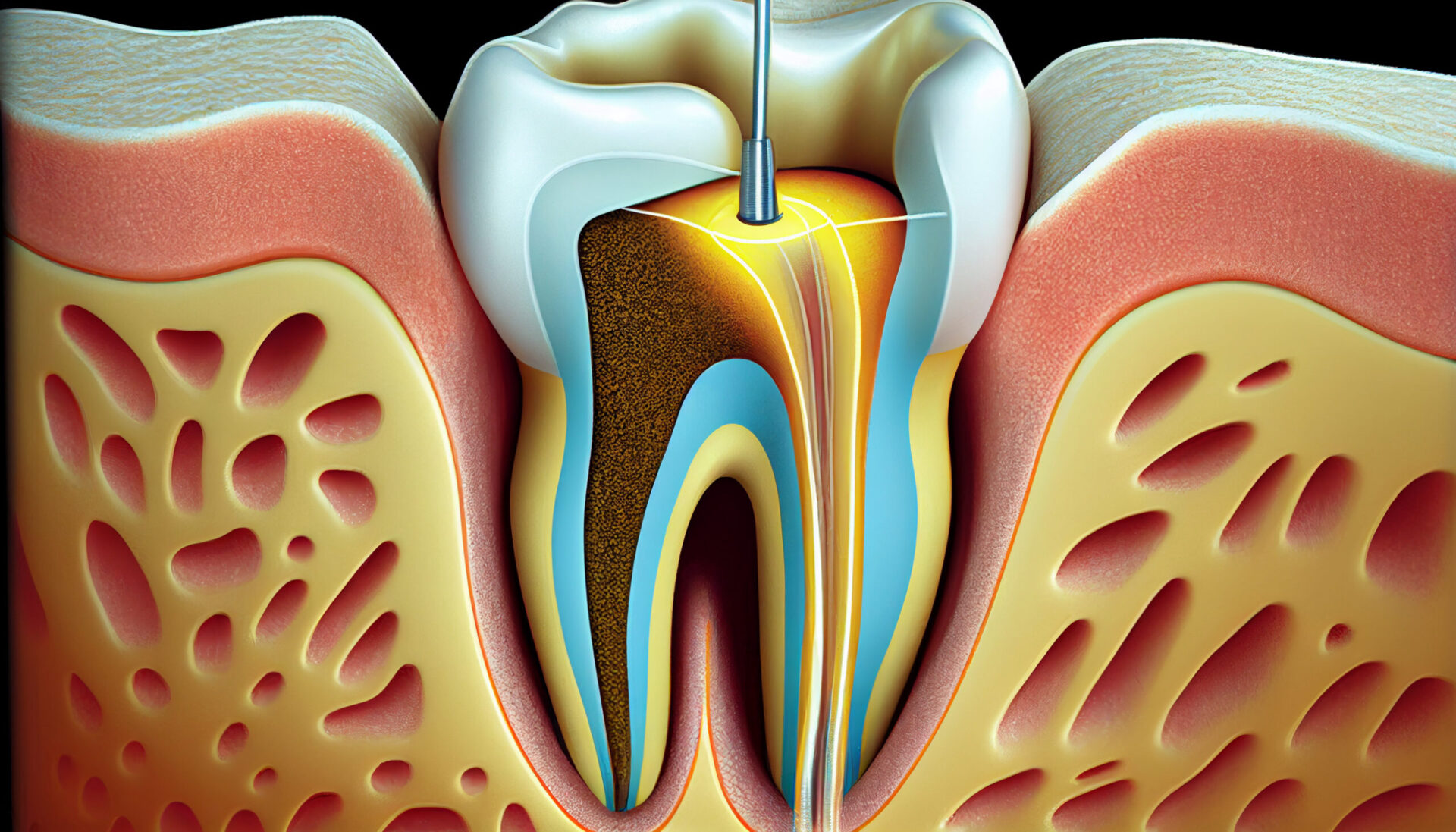It is completely fine to have multiple questions if you have been recommended a root canal. However, it is essential to understand that a root canal treatment saves the natural tooth structure. This article will address one commonly encountered question, “What to expect before and after a root canal?”

Before a root canal treatment, the tooth is highly infected. The infection lies in the heart of the tooth’s root, which is its pulp. The patient may experience periods of severe pain, discomfort, and sensitivity as a result of that infection. This infection indicates that the patient should have a root canal treatment for that particular tooth.
What to expect after a root canal? All the previously mentioned symptoms are resolved. To understand the before and after root canal situation, let’s first grasp the concept of the treatment and its goals.
A root canal is a part of the tooth’s root enclosing the pulp chamber. The root canal treatment refers to the process of removing the infected pulp of a tooth.
A previously alive and vital tooth becomes non-vital after the root canal treatment. This is because the portion of the tooth with which the blood vessels and nerves are associated is removed. Once the pulp is removed, the tooth can be considered dead. Despite being dead, it is capable of performing all the oral functions. Fascinating, right?
Pain, sensitivity, and extreme discomfort can be expected before road canal treatment. To understand this in a better manner, let’s have a comprehensive look at the signs and symptoms that patients usually experience before a root canal:
Thereby, this section explains the first portion of the question, ‘What to expect before and after a root canal?’
You can expect the following during a root canal:
Initially, during a root canal, a detailed clinical history and a comprehensive evaluation are conducted. Radiographs in the form of X-rays are done to keep a record and for better treatment planning. Then, the entire procedure is explained in detail so that there are no surprises for the patient, which may make them uncomfortable during the treatment.
Next, the tooth and its surrounding tissues are numbed with the help of appropriate local anesthesia. The exact amount of local anesthesia depends upon the patient’s weight and age. Local dental anesthesia contains a specific component called epinephrine or adrenaline.
The effect of this component is that the numbing effect remains in that localized area and is not diluted in the rest of the bloodstream. This improves the efficacy of the local anesthesia.
The third step during the root canal treatment includes the removal of the impacted pulp from within the root of the tooth. Now, how is that done?
A hole or access is created on the surface of the tooth. This helps to access the underlying pulp. The infected pulp is removed from the pulp chamber with the help of small instruments. The dentist needs to keep irrigating the root canal during this.
After this is complete, appropriate root canal medication is placed in the root canal to fill it. The patient is given post-op instructions and sent home once the filling is done.
The final step encompasses the fabrication and placement of the crown. The dentists often recommend a crown to be placed over the root canal-treated tooth. The purpose of this step is to prevent reinfection and to increase the life span of the tooth.
After the root canal, you will be relieved from the throbbing and pulsating pain. As the infection is treated, all the symptoms associated with that infection are also resolved. The patient’s teeth are no longer sensitive to cold drinks or hot food. The health of the gums is also restored.
Despite all the positive outcomes, the dentist may recommend antibiotics and painkillers to ensure a pain-free experience. The patient’s antibiotic may continue for up to 5 to 7 days. Meanwhile, painkillers can be taken as recommended by the doctor.
You must maintain good health in the oral cavity to take care of root canal-treated teeth. It is necessary to brush twice a day. Moreover, flossing the interdental spaces is vital in improving the tooth’s longevity after a root canal. Rinsing your mouth with lukewarm salt water now and then boosts your health.
Whether or not your tooth has been treated with a root canal, it is better to avoid sugar-containing food and acidic beverages to improve oral health. In addition to understanding the before and after root canal, following these guidelines is essential to maintain and preserve the root canal-treated tooth.
This article depicts what you can expect before and after a root canal. All the pain sensitivity and irritation experienced before the root canal treatment is conveniently resolved pain-free by this treatment. A root canal is a practical demonstration of modern dentistry which is preferred to save the natural tooth structure rather than extract it and replace it with artificial teeth.
Whether you want to know more about before and after a root canal treatment or get one done on your teeth, book your appointment today with Hesed Dental for an optimal consultation. Halt your search for a root canal in NJ, as you can get the best root canal surgery in NJ at Hesed Dental.
Contact us and live a pain-free life!

Hesed Dental 543 Gorge Road Cliffside Park, NJ 07010
201 941 8877